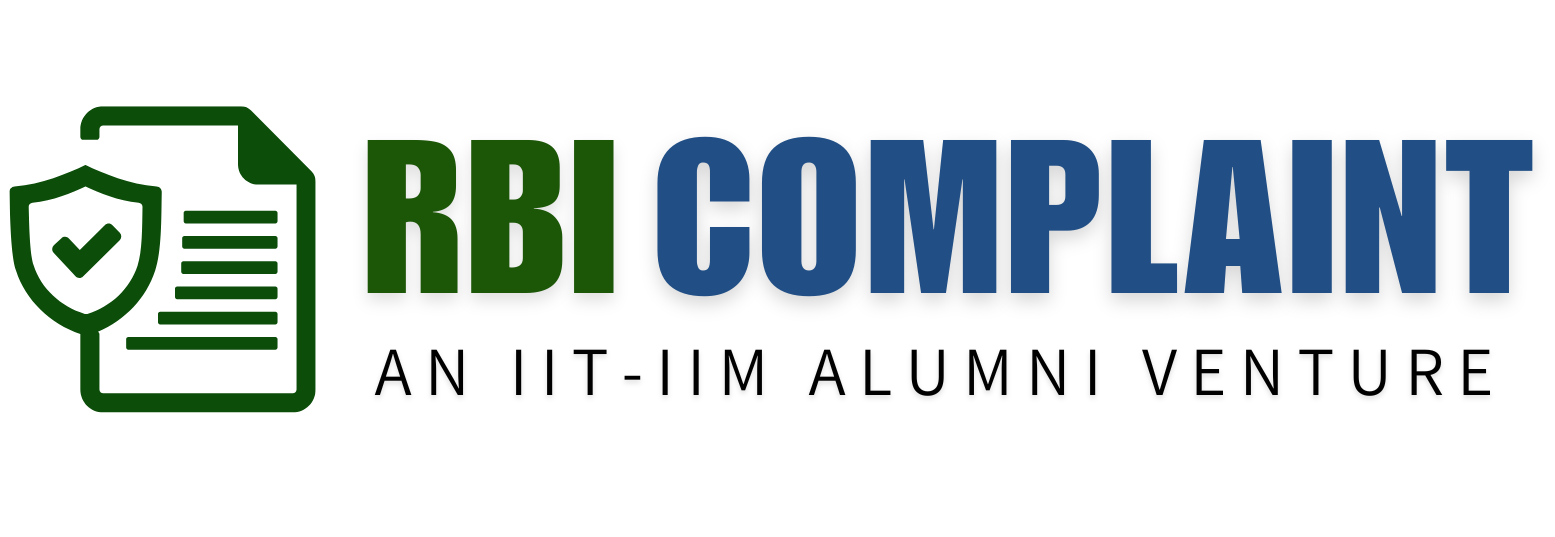· NBFC · 4 min read
What Is an NBFC, and How Can You File a Complaint Against One?
Learn what a Non-Banking Financial Company (NBFC) is and the step-by-step process to file a complaint against an NBFC for unfair practices or disputes in India.

Non-Banking Financial Companies (NBFCs) have become increasingly important players in India’s financial landscape, offering various financial services that complement those provided by traditional banks. As their presence grows, so does the importance of understanding how to address grievances when issues arise.
Understanding NBFCs
Definition and Role
NBFCs are financial institutions that provide banking services without meeting the legal definition of a bank. Unlike banks, NBFCs cannot accept demand deposits (like checking accounts) and cannot issue checks. However, they offer many services similar to banks, including loans, credit facilities, insurance, investments, and retirement planning.
Types of NBFCs
NBFCs are classified based on their primary business activities:
Asset Finance Companies: Focus on financing physical assets like vehicles and machinery
Investment Companies: Primarily deal with securities transactions
Loan Companies: Provide loans and advances for various purposes
Infrastructure Finance Companies: Specialize in infrastructure project financing
Microfinance Institutions: Extend small loans to low-income individuals
Housing Finance Companies: Specialize in housing loans
Regulatory Framework
NBFCs are regulated by the Reserve Bank of India (RBI) under the RBI Act, 1934, and must obtain a certificate of registration to commence or carry on business. Housing Finance Companies (HFCs) were previously regulated by the National Housing Bank but are now under RBI supervision.
Common Complaints Against NBFCs
Typical grievances filed against NBFCs include:
Charging excessive interest rates or hidden fees
Harsh recovery practices or harassment by recovery agents
Lack of transparency in loan terms and conditions
Unauthorized changes to loan agreements
Poor customer service
Misrepresentation of products or services
Improper handling of personal data
Delay in providing no-objection certificates after loan repayment
Filing a Complaint Against an NBFC
Step 1: Approach the NBFC First
Always begin by raising your concern directly with the NBFC. Most NBFCs have dedicated customer service departments and formal grievance redressal mechanisms:
Submit your complaint in writing to the branch where you conduct business
Contact the NBFC’s customer care through phone, email, or their website
Approach the designated Grievance Redressal Officer (GRO)
Keep records of all communications, including dates, names of representatives, and reference numbers.
Step 2: Escalate to the NBFC’s Nodal Officer
If your complaint remains unresolved within 30 days, escalate it to the NBFC’s Nodal Officer. By regulation, all NBFCs must appoint Nodal Officers to handle customer grievances at the operational level.
Step 3: File a Complaint with the RBI Ombudsman
If you’re still unsatisfied with the resolution, approach the RBI’s Ombudsman for NBFCs. The NBFC Ombudsman Scheme, 2018 (updated in 2021), provides a cost-free and expeditious complaint redressal mechanism.
You can file a complaint with the NBFC Ombudsman:
Online: Through the Complaint Management System portal (https://cms.rbi.org.in)
Email: Send your complaint to the designated email address of the relevant Ombudsman office
Physical mail: Submit a signed complaint letter to the Ombudsman office in your region
Mobile app: Use the RBI’s “Sachet” app to file complaints
When filing with the Ombudsman, include:
Your name and contact details
The name and address of the NBFC
The facts of the complaint with supporting documents
The specific relief sought
A declaration that the complaint hasn’t been concurrently filed with other forums
Step 4: Appeal to the Appellate Authority
If you’re dissatisfied with the Ombudsman’s decision, you can appeal to the Executive Director of the RBI within 30 days.
Alternative Channels
Additional avenues for filing complaints include:
Consumer Courts: File a case under the Consumer Protection Act
Civil Courts: Pursue legal action for breach of contract
RBI Centralized Public Grievance Redress System: Register complaints directly with RBI
Tips for Effective Complaint Resolution
Document everything: Maintain copies of all loan agreements, statements, receipts, and correspondence
Be specific: Clearly state the issue, relevant dates, and the names of officials involved
Provide evidence: Attach supporting documents that substantiate your claim
Specify relief sought: Clearly mention what resolution you’re seeking
Maintain composure: Remain calm and professional in all communications
Follow up regularly: Monitor the status of your complaint and follow up appropriately
Preventive Measures
To avoid issues with NBFCs:
Read all terms and conditions carefully before signing agreements
Verify the NBFC’s RBI registration status
Compare loan offers from multiple lenders
Check for hidden charges and penalties
Research the NBFC’s reputation and customer reviews
Keep records of all transactions and communications
NBFCs play a vital role in expanding financial inclusion and providing specialized services, but customers should understand their rights and the available redressal mechanisms. By following the structured complaint process and maintaining thorough documentation, consumers can effectively address grievances with NBFCs and seek appropriate resolutions.
Being aware of your rights and the proper channels for addressing concerns ensures that you can navigate issues with NBFCs confidently and effectively.



